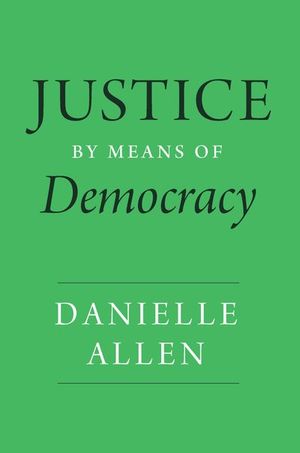Justice by Means of Democracy
Published by The University of Chicago Press
A bold and urgent articulation of a new political philosophy: power-sharing liberalism.
“An important critique of much of twentieth-century liberalism, which emphasized the distinction between liberty and democracy…. An important and provocative work of political theory. Essential.”—Choice
At a time of great social and political turmoil, when many residents of the leading democracies question the ability of their governments to deal fairly and competently with serious public issues, and when power seems more and more to rest with the wealthy few, this book reconsiders the very foundations of democracy and justice. Scholar and writer Danielle Allen argues that the surest path to a just society in which all are given the support necessary to flourish is the protection of political equality; that justice is best achieved by means of democracy; and that the social ideals and organizational design principles that flow from recognizing political equality and democracy as fundamental to human well-being provide an alternative framework not only for justice but also for political economy. Allen identifies this paradigm-changing new framework as “power-sharing liberalism.”
Liberalism more broadly is the philosophical commitment to a government grounded in rights that both protect people in their private lives and empower them to help govern public life. Power-sharing liberalism offers an innovative reconstruction of liberalism based on the principle of full inclusion and non-domination—in which no group has a monopoly on power—in politics, economy, and society. By showing how we all might fully share power and responsibility across all three sectors, Allen advances a culture of civic engagement and empowerment, revealing the universal benefits of an effective government in which all participate on equal terms.
“A major contribution to the philosophical literature on sociopolitical justice. Written in an engaging style, Allen’s explanations are carefully reasoned, poised, always clear, and reassuringly balanced throughout…. One feels throughout a confident force of reason that comes from grappling with a wide variety of approaches within political philosophy, along with many contextualized applications and examples.”—Notre Dame Philosophical Reviews
BUY NOW FROM
COMMUNITY REVIEWS

